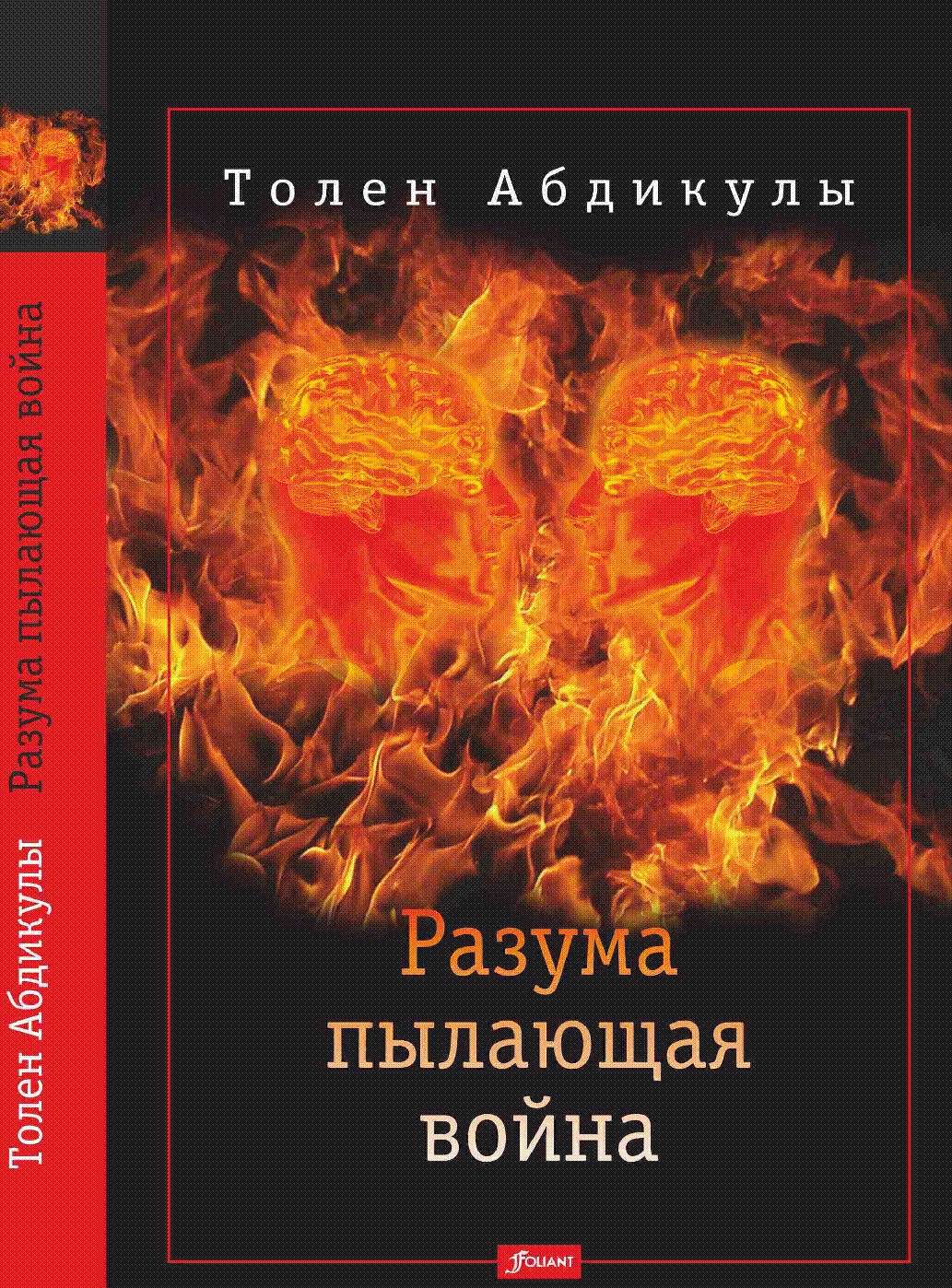Tolen Abdikov occupies a special place in Qazaq literature. His creativity is expressed through fictional prose, which includes novels, novellas and short stories.
The central theme of his works is a fate or a destiny of a man. His works depicts the real value of a human life, the moral battle between good and evil, metaphysical relation of man's mind and body, because a person begins with concrete human experience and then moves toward reflection.

a picture is from open sources
One of the most significant works of the writer Tolen Abdikov is the novelette “The Burning War of the Mind” (2002). It is more popular among readers in Russian translation of Anatoly Kim. The original version of the story is called “Parasat Maidany”. The story “The Burning War of the Mind” by Tolen Abdikov in 2003 was awarded by the International Literary Franz Kafka Prize and in 2004 was given the State Award of the Republic of Qazaqstan.
The epigraphs to Tolen Abdikov’s novel are taken from Hamlet’s well-known monologue by Shakespeare’s Hamlet “To be or not to be - that’s the question ...” and a phrase from an American writer Robert Pen Warren’s great novel “All the King's Men”: “You have to make the good out of the bad because that is all you have to make it out of”. In this manner, both epigraphs prepare the reader for certain reflections: hesitations in his or her true essence, in inner peace that means hesitations in world peace, an understanding of the relativity of good and evil.
The piece of art by Tolen Abdikov is written in the form and style of a diary, it allows to deliver a picture of the main hero in more accurate and deep way. Based on the content of the story, the hero experiences external and internal loneliness.

a picture is from open sources
He has no friends, relatives or close people with whom he could share his thoughts, feelings, emotions or daily news. In addition, he feels lonely “inside” himself. There are a lot of people around him, but there is no even a person who could understand him. His diaries are full of reflections, a great desire to look within himself, to ponder on his actions.
The diaries of the hero, consisting of several notebooks, only in the very last part contain the vague outlines of his destiny, associated, in particular, with his stay in a psychiatric hospital. In addition, in great detail, the “correspondence” with a certain “unfamiliar peer” is carefully presented. The author shows the sensations of the hero, who was involved in this process not on his own will.
The story clearly expresses the motive of the incomprehensibility of the mysteries of existence, the motive of the great “irresponsibility of the world”. “A person’s life looks like water, that is absorbed by the sand in a flash”. The author of the diaries is feeling anxious and stressed. He has been a nervous wreck.
An important function is performed by the dreams of the hero, in particular, the dream about a severed head. The hero begins to be tormented by fear for himself, a feeling of alienation from himself, “extraneousness” in relation to himself (in this regard we may recall the experience of Albert Camus in the novel “The Stranger”).
An “Unfamiliar Colleague,” daily leaving his notes to the author’s diary with reflections on the indivisibility of good and evil, he is convinced of the ineradicability of evil and even in its necessity, unlike the author of the diary, who is a man of traditional humanistic beliefs.
Such dualisms as good and evil, falsehood and truth, life and death, as well as loneliness, fear, freedom, sin, guilt provoke in the soul of the main hero a dialogue with himself, that is, a polemic with another “I”. One of the sides of the soul acts as a prosecutor, and the other as a lawyer. These messages deprive him of a restful sleep, he is constantly haunted by the thought of a stranger who is watching him. A light detective touch enhances the mystery of the hidden twin.
Suddenly for the main hero, it turns out, that the twin does not exist somewhere outside, but he is hidden inside himself, it is dark side of his soul.
The protagonist has a split personality because of his social passivity, an infantile attitude towards the world around him and reality. The spiritual somatics of such diseases characterize the environment. An uncomfortable, disharmonious environment caused an appearance of such a hero, who is unable to recognize the roots of his own psychological contradictions.
At the end of the novelette the hero goes to the bathroom and to kill his selfish “I” tries to cut his veins…
It is unknown whether it will be possible to save the life of our hero or not ...
An internal conflict is a mental struggle that arises from opposing demands or impulses. Self conflict is suspenseful because the antagonist – the ‘shadow’ self – is always present. He may stay alive, if he can succeed in overcoming the internal turmoil and conflict...
Pleasure of reading such conflict-rich stories is our uncertainty – we want to know what happens next...
At the same time reading of such stories makes us think about the meaning of life and our priorities, probably even will prompt an idea to reassess our values and begin to live more consciously.
About the author
Tolen Abdikov was born on September, 4 in 1942 in a small settlement under a name “Enbek”, located in Kostanay region.
His first story under a title “Raikhan” was published in 1964 in a collection of stories of young writers of Qazaqstan “The Morning dew”.
In 1994, he worked as an Assistant to the President of the Republic of Qazaqstan, and in 1997 he executed functions of the Deputy Head of the Internal Policy Department in the Administration of the President of the Republic of Qazaqstan.
To copy and publish materials, you must have written or oral permission from the editorial board or the author. A hyperlink to the Adebiportal.kz portal is required. All rights reserved by the Law of the Republic of Kazakhstan "On Copyright and Related Rights". adebiportal@gmail.com 8(7172) 57 60 14 (in - 1060)
The opinion of the author of the article does not represent the opinion of the editorial board.





